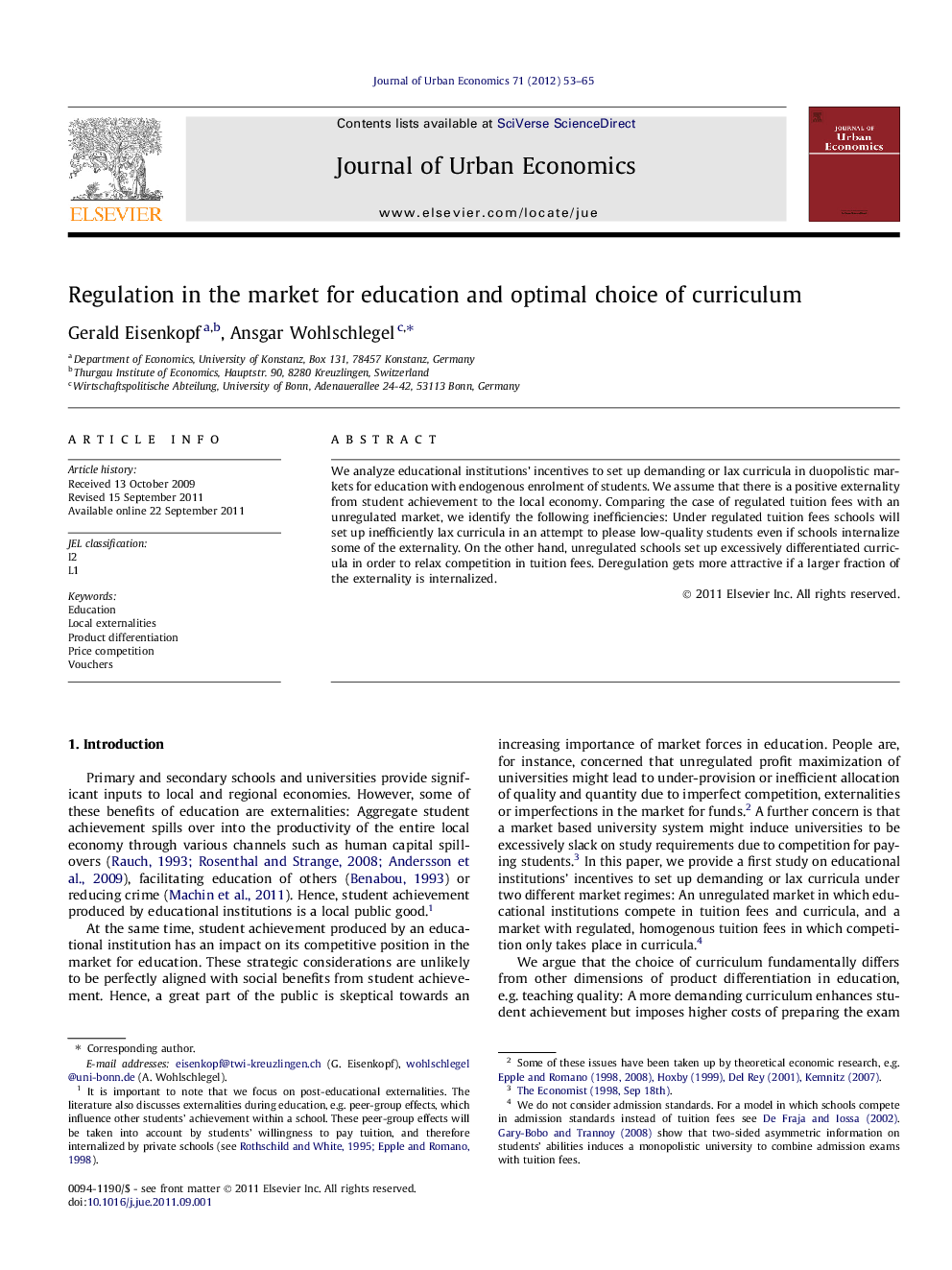| Article ID | Journal | Published Year | Pages | File Type |
|---|---|---|---|---|
| 971827 | Journal of Urban Economics | 2012 | 13 Pages |
We analyze educational institutions’ incentives to set up demanding or lax curricula in duopolistic markets for education with endogenous enrolment of students. We assume that there is a positive externality from student achievement to the local economy. Comparing the case of regulated tuition fees with an unregulated market, we identify the following inefficiencies: Under regulated tuition fees schools will set up inefficiently lax curricula in an attempt to please low-quality students even if schools internalize some of the externality. On the other hand, unregulated schools set up excessively differentiated curricula in order to relax competition in tuition fees. Deregulation gets more attractive if a larger fraction of the externality is internalized.
